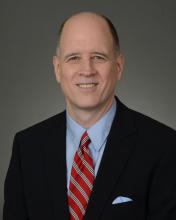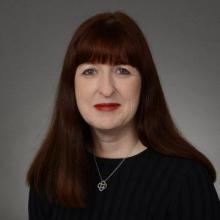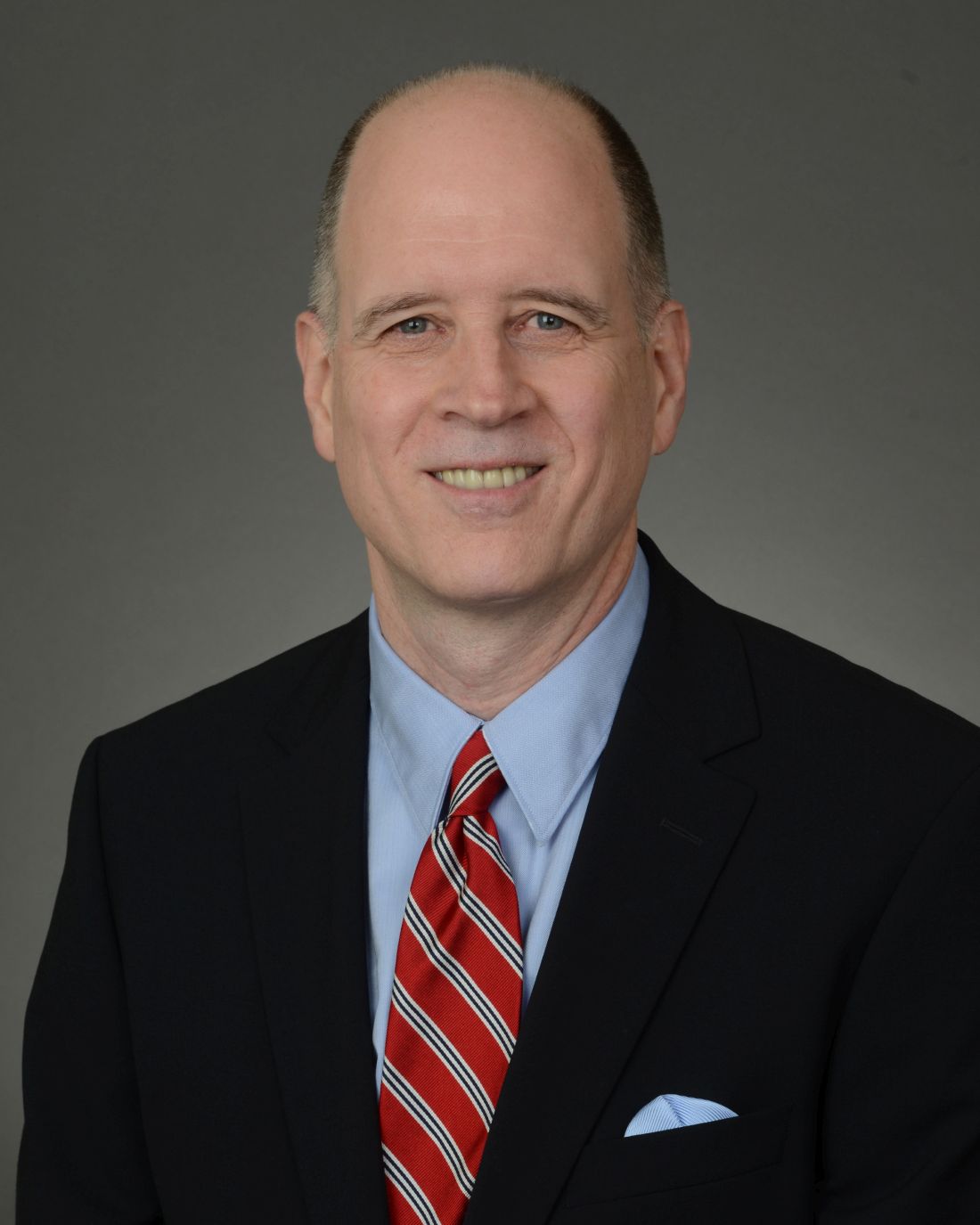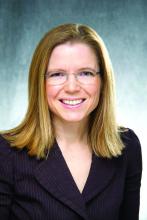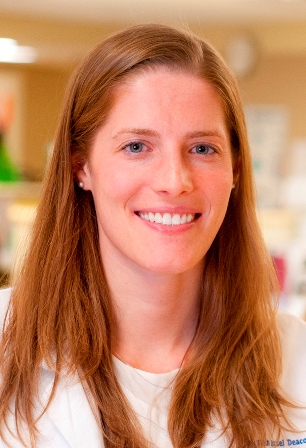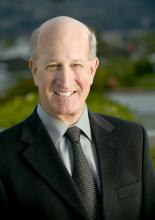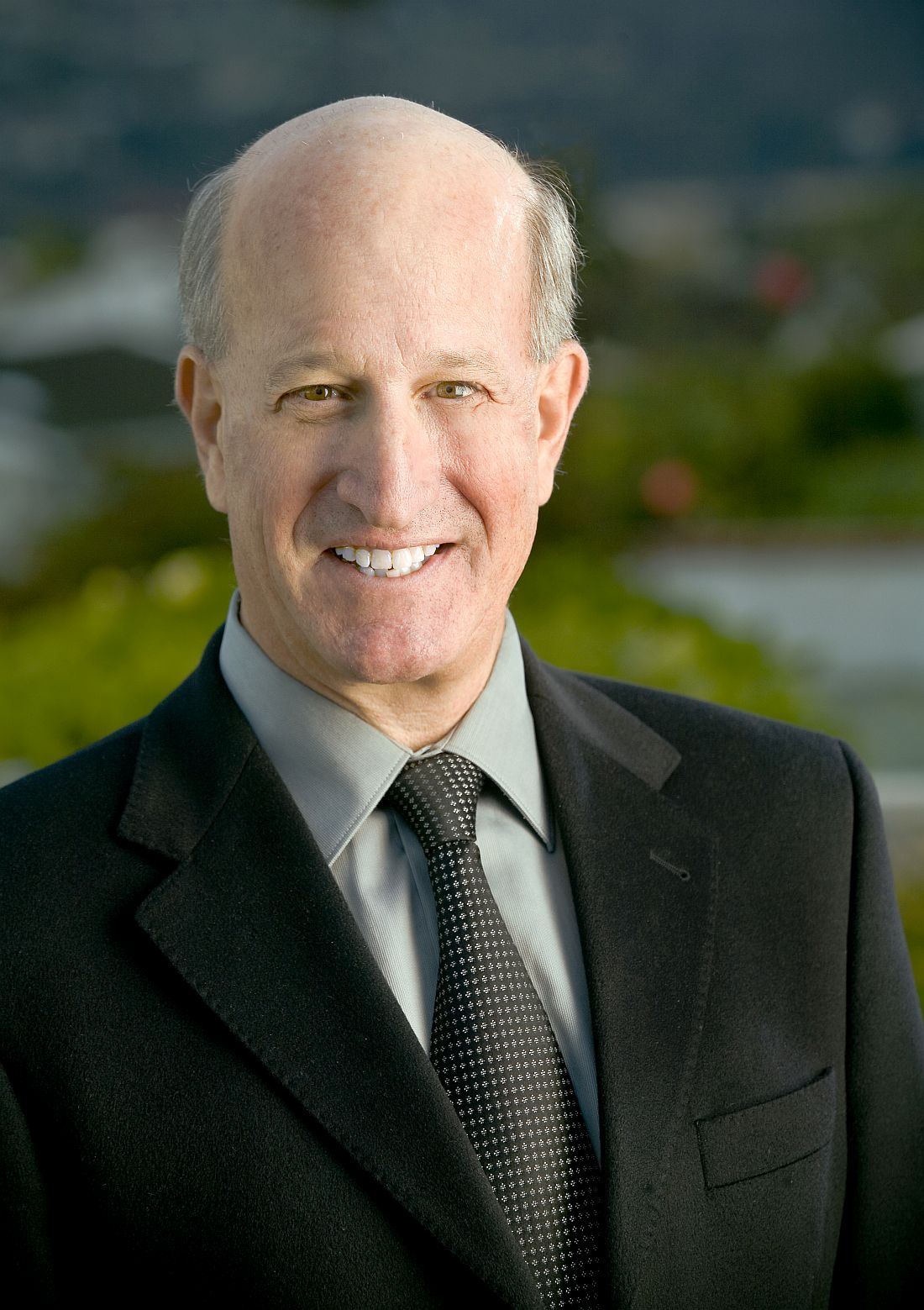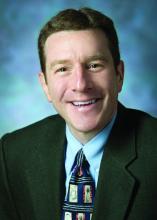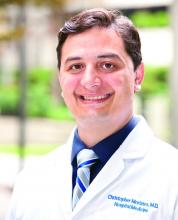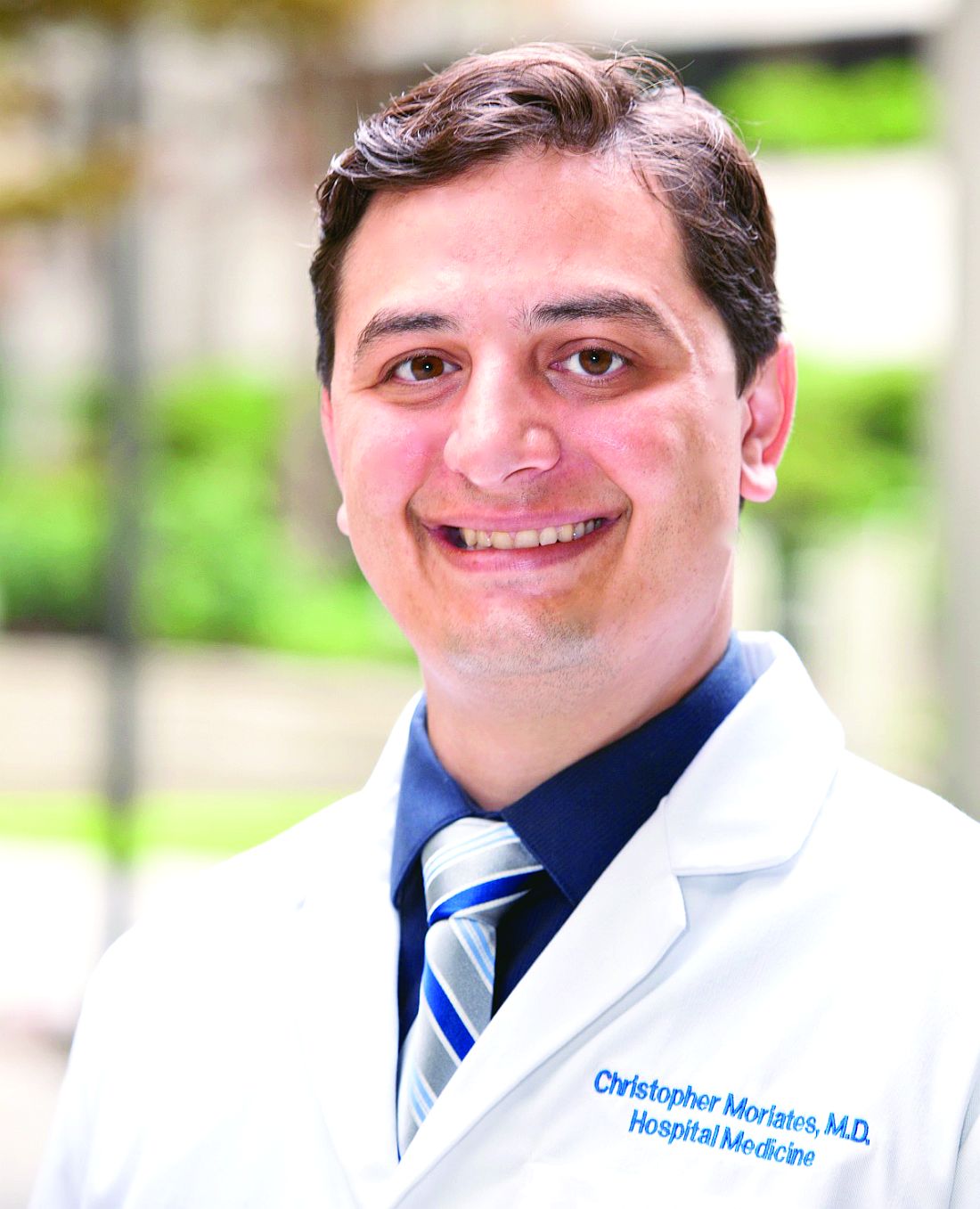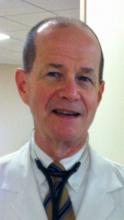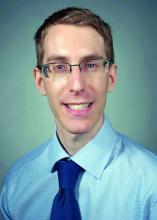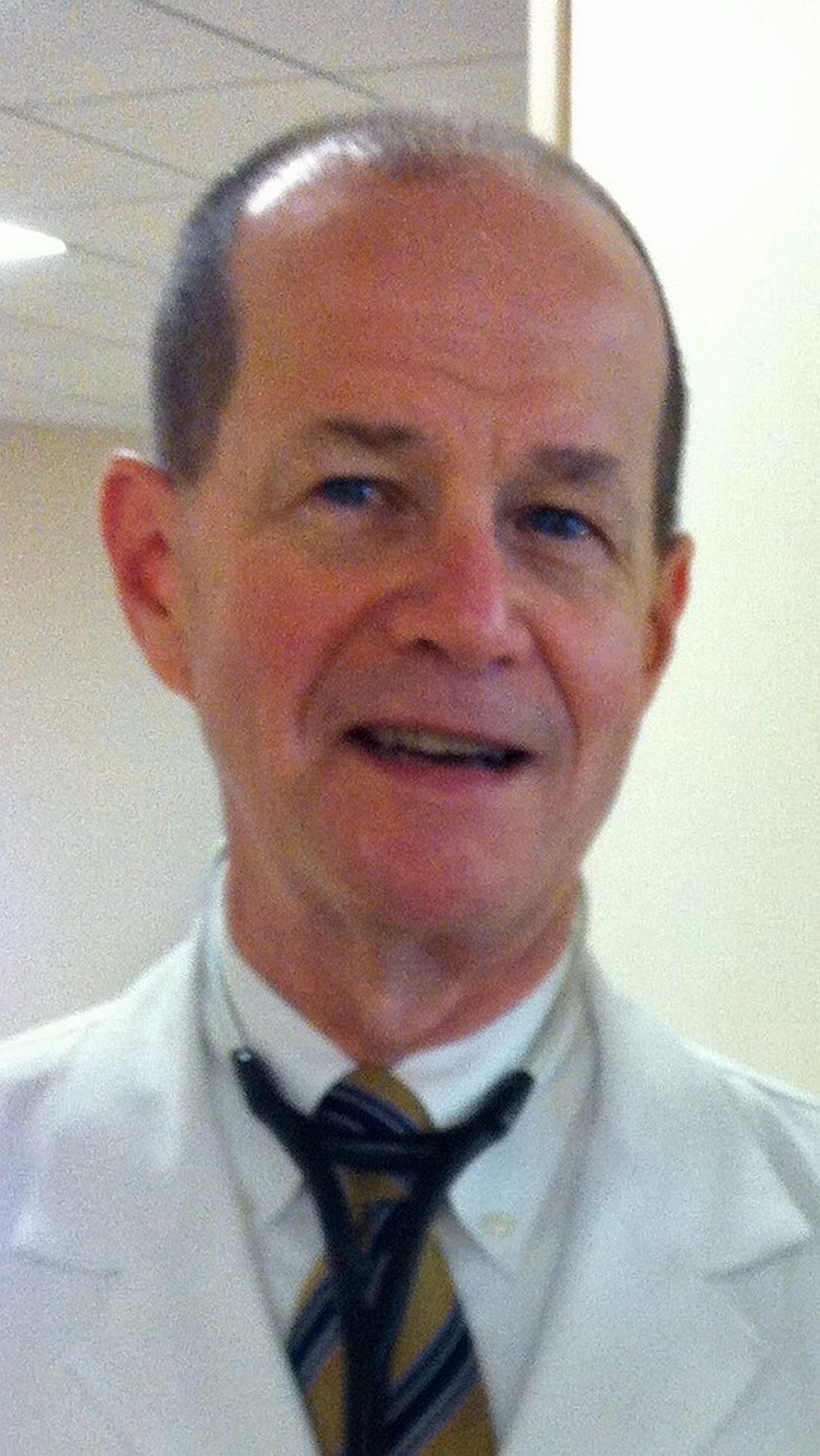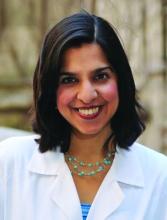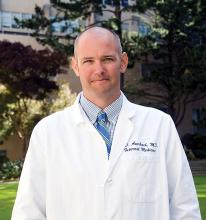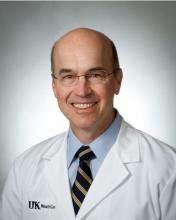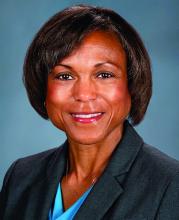User login
Official news magazine of the Society of Hospital Medicine
Copyright by Society of Hospital Medicine or related companies. All rights reserved. ISSN 1553-085X
nav[contains(@class, 'nav-ce-stack nav-ce-stack__large-screen')]
header[@id='header']
div[contains(@class, 'header__large-screen')]
div[contains(@class, 'read-next-article')]
div[contains(@class, 'main-prefix')]
div[contains(@class, 'nav-primary')]
nav[contains(@class, 'nav-primary')]
section[contains(@class, 'footer-nav-section-wrapper')]
footer[@id='footer']
section[contains(@class, 'nav-hidden')]
div[contains(@class, 'ce-card-content')]
nav[contains(@class, 'nav-ce-stack')]
div[contains(@class, 'view-medstat-quiz-listing-panes')]
div[contains(@class, 'pane-article-sidebar-latest-news')]
div[contains(@class, 'pane-pub-article-hospitalist')]
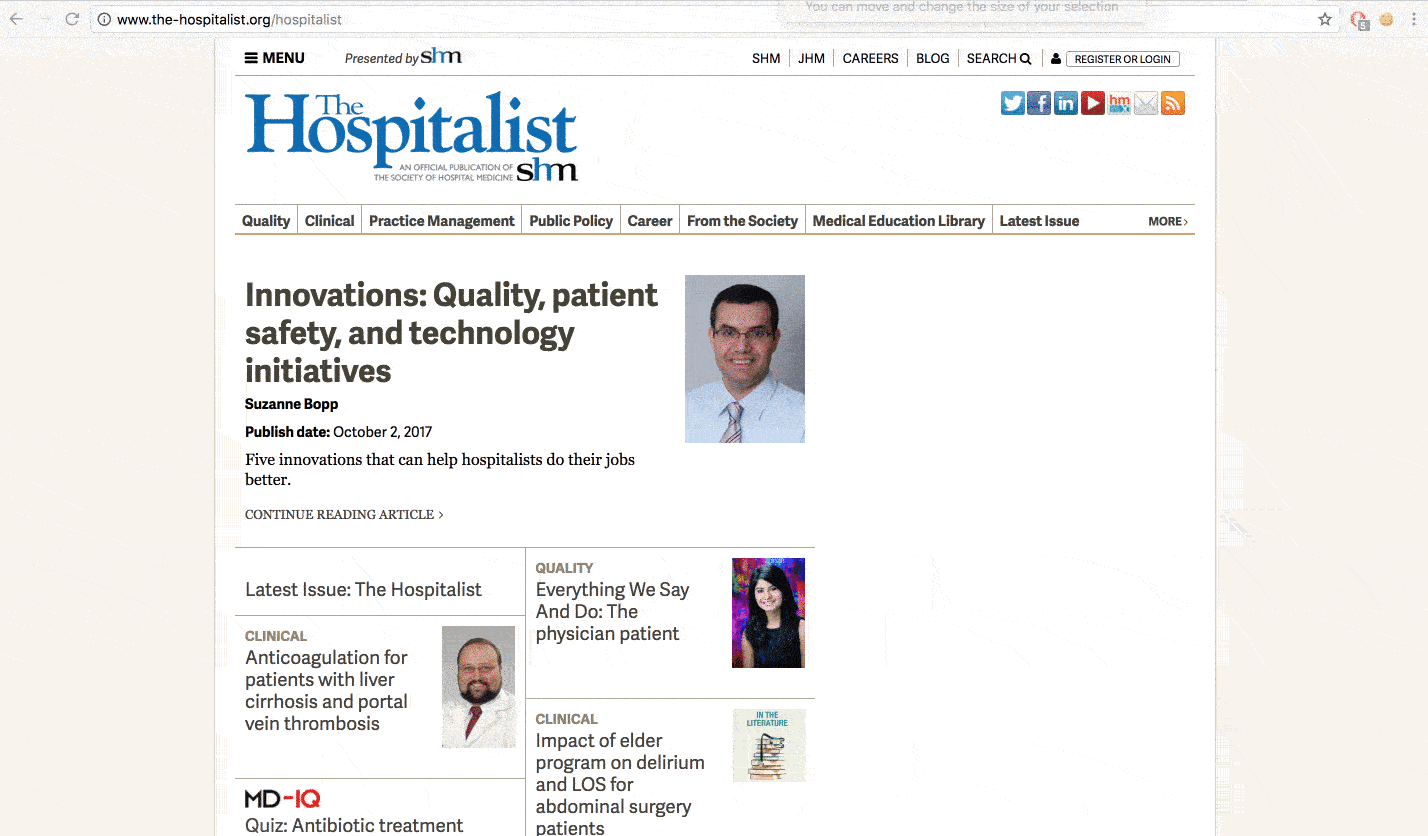

ID ‘boot camp’ emphasizes practice pearls
An intensive, day-long precourse on infectious diseases will return to the SHM annual meeting program for the first time in several years.
“Bugs, Drugs, and You: Infectious Diseases ‘Boot Camp’ for Hospitalists” will focus on a range of important clinical issues, including infectious diseases that appear with frequency and the high-stakes nature of which require correct diagnosis and treatment.
Cochair Jennifer Hanrahan, DO, also of MetroHealth Medical Center, agreed, noting that hospitalists must be able to recognize infectious disease emergencies and have some familiarity with HIV as it presents in hospitalized patients.
“We want [attendees] to think about which tests to order and when to stop antibiotic therapy,” she said.
The faculty includes infectious diseases specialists with extensive teaching backgrounds. Several are practicing hospitalists. John Sanders, MD, MPH, of Wake Forest University, Winston-Salem, N.C., and Glenn Wortmann, MD, of MedStar Washington Hospital Center will join Dr. Hanrahan and Dr. Pile as faculty members.
The precourse has five objectives:
- Describe best practices in skin and soft tissue infection treatment based on current guidelines and recently approved antimicrobial agents.
- Outline optimal strategies for prevention and treatment of Clostridium difficile, including disease recurrences.
- Identify key strategies for prevention of selected infections and discuss resistance issues impacting antimicrobial use.
- Focus on prompt recognition and treatment of certain infectious disease emergencies.
- Cover significant trends in endocarditis and other endovascular infections and their impact on treatment approaches.
When the infectious disease precourse was last presented, it received highly positive evaluations. “We believe that this new, improved iteration will be better than ever,” Dr. Pile said. “It will be well worth attendees’ time and money, providing them with renewed confidence in their ability to manage common and less common infectious diseases. They will be able to return to their practices armed with new strategies that they can immediately put to use.”
Bugs, Drugs, and You: Infectious Diseases “Boot Camp” for Hospitalists
Monday, May 1, 8:15 a.m.–4:30 p.m.
An intensive, day-long precourse on infectious diseases will return to the SHM annual meeting program for the first time in several years.
“Bugs, Drugs, and You: Infectious Diseases ‘Boot Camp’ for Hospitalists” will focus on a range of important clinical issues, including infectious diseases that appear with frequency and the high-stakes nature of which require correct diagnosis and treatment.
Cochair Jennifer Hanrahan, DO, also of MetroHealth Medical Center, agreed, noting that hospitalists must be able to recognize infectious disease emergencies and have some familiarity with HIV as it presents in hospitalized patients.
“We want [attendees] to think about which tests to order and when to stop antibiotic therapy,” she said.
The faculty includes infectious diseases specialists with extensive teaching backgrounds. Several are practicing hospitalists. John Sanders, MD, MPH, of Wake Forest University, Winston-Salem, N.C., and Glenn Wortmann, MD, of MedStar Washington Hospital Center will join Dr. Hanrahan and Dr. Pile as faculty members.
The precourse has five objectives:
- Describe best practices in skin and soft tissue infection treatment based on current guidelines and recently approved antimicrobial agents.
- Outline optimal strategies for prevention and treatment of Clostridium difficile, including disease recurrences.
- Identify key strategies for prevention of selected infections and discuss resistance issues impacting antimicrobial use.
- Focus on prompt recognition and treatment of certain infectious disease emergencies.
- Cover significant trends in endocarditis and other endovascular infections and their impact on treatment approaches.
When the infectious disease precourse was last presented, it received highly positive evaluations. “We believe that this new, improved iteration will be better than ever,” Dr. Pile said. “It will be well worth attendees’ time and money, providing them with renewed confidence in their ability to manage common and less common infectious diseases. They will be able to return to their practices armed with new strategies that they can immediately put to use.”
Bugs, Drugs, and You: Infectious Diseases “Boot Camp” for Hospitalists
Monday, May 1, 8:15 a.m.–4:30 p.m.
An intensive, day-long precourse on infectious diseases will return to the SHM annual meeting program for the first time in several years.
“Bugs, Drugs, and You: Infectious Diseases ‘Boot Camp’ for Hospitalists” will focus on a range of important clinical issues, including infectious diseases that appear with frequency and the high-stakes nature of which require correct diagnosis and treatment.
Cochair Jennifer Hanrahan, DO, also of MetroHealth Medical Center, agreed, noting that hospitalists must be able to recognize infectious disease emergencies and have some familiarity with HIV as it presents in hospitalized patients.
“We want [attendees] to think about which tests to order and when to stop antibiotic therapy,” she said.
The faculty includes infectious diseases specialists with extensive teaching backgrounds. Several are practicing hospitalists. John Sanders, MD, MPH, of Wake Forest University, Winston-Salem, N.C., and Glenn Wortmann, MD, of MedStar Washington Hospital Center will join Dr. Hanrahan and Dr. Pile as faculty members.
The precourse has five objectives:
- Describe best practices in skin and soft tissue infection treatment based on current guidelines and recently approved antimicrobial agents.
- Outline optimal strategies for prevention and treatment of Clostridium difficile, including disease recurrences.
- Identify key strategies for prevention of selected infections and discuss resistance issues impacting antimicrobial use.
- Focus on prompt recognition and treatment of certain infectious disease emergencies.
- Cover significant trends in endocarditis and other endovascular infections and their impact on treatment approaches.
When the infectious disease precourse was last presented, it received highly positive evaluations. “We believe that this new, improved iteration will be better than ever,” Dr. Pile said. “It will be well worth attendees’ time and money, providing them with renewed confidence in their ability to manage common and less common infectious diseases. They will be able to return to their practices armed with new strategies that they can immediately put to use.”
Bugs, Drugs, and You: Infectious Diseases “Boot Camp” for Hospitalists
Monday, May 1, 8:15 a.m.–4:30 p.m.
Multiple career options for hospitalists
A Tuesday morning session at 10:35–11:15 a.m. called “Hospitalist Careers: So Many Options” will highlight the wide range of job possibilities for young hospitalists and provide a framework for advancing your career.
“Especially early in their careers, hospitalists can sometimes be overwhelmed by the possibilities of where their career can go and how to get to the position that they want, whether it’s leadership or another ultimate goal,” said copresenter Brian Markoff, MD, FACP, SFHM, chief of the division of hospital medicine at Mount Sinai St. Luke’s Hospital in New York. “This session is designed to help young physicians figure out where they are, where they want to be, and how they might be able to get there.”
The session – aimed at medical students, residents, fellows, and new hospitalists – will review different careers in hospital medicine, including academics and clinical work; share some individual success stories of currently practicing hospitalists; discuss the importance of mentorship; and note how you can use the Society of Hospital Medicine to advance your career status. “This is to help you take a step back and think about the big picture,” said copresenter Alfred Burger, MD, FACP, SFHM, associate program director of the internal medicine residency at Mount Sinai Beth Israel Hospital in New York.
Hospitalist careers today are quite varied, Dr. Burger said. Some physicians have a career that is primarily clinical while others have moved into a wide variety of leadership roles. “Hospitalists have ascended to some of the highest levels of leadership, whether it’s surgeon general or a chief medical officer or chief operating officer of a government agency or hospital group,” he said.
Some hospitalists have had success moving into the business and consulting range after practicing in a hospital setting, advising organizations how to do things more efficiently, while others have taken on health services research or patient safety and quality improvement work, he added.
Young hospitalists lately have been concerned with how much job advancement depends on gaining an extra degree like an MBA, versus being a really good hospitalist and working your way up, Dr. Markoff said. “We tell them, ‘You can do both,’ ” he said. “Depending on your career choice, you may or may not need an advanced degree.” In the past, Dr. Burger added, most hospitalists started a career and then gained additional degrees as needed. Today more hospitalists are starting their careers as a dual or sometimes triple degree holder.
“Hopefully, the session will help young hospitalists reflect on their own practice and help them sort out what they are doing that will get them to their ultimate career goal,” Dr. Markoff said. “The main take-home message is ‘There’s no one right way to get the career you want, but it’s going to take some active management on your part to get on the right path.’ ”
Dr. Burger thinks that the career pathways in hospital medicine are limited only by your own imagination. “Our talk is meant to inspire you to see the wide possibilities,” he said.
Attendees of the session, now in its third year, can serve as resources to peers and others who are more junior, Dr. Burger noted. “You may be able to inspire somebody based on something you heard” or share advice learned with a friend or colleague, he said, noting that some hospitalists have attended more than once.
“Hospitalist Careers: So Many Options”Tuesday, 10:35 a.m.–11:15 a.m.
A Tuesday morning session at 10:35–11:15 a.m. called “Hospitalist Careers: So Many Options” will highlight the wide range of job possibilities for young hospitalists and provide a framework for advancing your career.
“Especially early in their careers, hospitalists can sometimes be overwhelmed by the possibilities of where their career can go and how to get to the position that they want, whether it’s leadership or another ultimate goal,” said copresenter Brian Markoff, MD, FACP, SFHM, chief of the division of hospital medicine at Mount Sinai St. Luke’s Hospital in New York. “This session is designed to help young physicians figure out where they are, where they want to be, and how they might be able to get there.”
The session – aimed at medical students, residents, fellows, and new hospitalists – will review different careers in hospital medicine, including academics and clinical work; share some individual success stories of currently practicing hospitalists; discuss the importance of mentorship; and note how you can use the Society of Hospital Medicine to advance your career status. “This is to help you take a step back and think about the big picture,” said copresenter Alfred Burger, MD, FACP, SFHM, associate program director of the internal medicine residency at Mount Sinai Beth Israel Hospital in New York.
Hospitalist careers today are quite varied, Dr. Burger said. Some physicians have a career that is primarily clinical while others have moved into a wide variety of leadership roles. “Hospitalists have ascended to some of the highest levels of leadership, whether it’s surgeon general or a chief medical officer or chief operating officer of a government agency or hospital group,” he said.
Some hospitalists have had success moving into the business and consulting range after practicing in a hospital setting, advising organizations how to do things more efficiently, while others have taken on health services research or patient safety and quality improvement work, he added.
Young hospitalists lately have been concerned with how much job advancement depends on gaining an extra degree like an MBA, versus being a really good hospitalist and working your way up, Dr. Markoff said. “We tell them, ‘You can do both,’ ” he said. “Depending on your career choice, you may or may not need an advanced degree.” In the past, Dr. Burger added, most hospitalists started a career and then gained additional degrees as needed. Today more hospitalists are starting their careers as a dual or sometimes triple degree holder.
“Hopefully, the session will help young hospitalists reflect on their own practice and help them sort out what they are doing that will get them to their ultimate career goal,” Dr. Markoff said. “The main take-home message is ‘There’s no one right way to get the career you want, but it’s going to take some active management on your part to get on the right path.’ ”
Dr. Burger thinks that the career pathways in hospital medicine are limited only by your own imagination. “Our talk is meant to inspire you to see the wide possibilities,” he said.
Attendees of the session, now in its third year, can serve as resources to peers and others who are more junior, Dr. Burger noted. “You may be able to inspire somebody based on something you heard” or share advice learned with a friend or colleague, he said, noting that some hospitalists have attended more than once.
“Hospitalist Careers: So Many Options”Tuesday, 10:35 a.m.–11:15 a.m.
A Tuesday morning session at 10:35–11:15 a.m. called “Hospitalist Careers: So Many Options” will highlight the wide range of job possibilities for young hospitalists and provide a framework for advancing your career.
“Especially early in their careers, hospitalists can sometimes be overwhelmed by the possibilities of where their career can go and how to get to the position that they want, whether it’s leadership or another ultimate goal,” said copresenter Brian Markoff, MD, FACP, SFHM, chief of the division of hospital medicine at Mount Sinai St. Luke’s Hospital in New York. “This session is designed to help young physicians figure out where they are, where they want to be, and how they might be able to get there.”
The session – aimed at medical students, residents, fellows, and new hospitalists – will review different careers in hospital medicine, including academics and clinical work; share some individual success stories of currently practicing hospitalists; discuss the importance of mentorship; and note how you can use the Society of Hospital Medicine to advance your career status. “This is to help you take a step back and think about the big picture,” said copresenter Alfred Burger, MD, FACP, SFHM, associate program director of the internal medicine residency at Mount Sinai Beth Israel Hospital in New York.
Hospitalist careers today are quite varied, Dr. Burger said. Some physicians have a career that is primarily clinical while others have moved into a wide variety of leadership roles. “Hospitalists have ascended to some of the highest levels of leadership, whether it’s surgeon general or a chief medical officer or chief operating officer of a government agency or hospital group,” he said.
Some hospitalists have had success moving into the business and consulting range after practicing in a hospital setting, advising organizations how to do things more efficiently, while others have taken on health services research or patient safety and quality improvement work, he added.
Young hospitalists lately have been concerned with how much job advancement depends on gaining an extra degree like an MBA, versus being a really good hospitalist and working your way up, Dr. Markoff said. “We tell them, ‘You can do both,’ ” he said. “Depending on your career choice, you may or may not need an advanced degree.” In the past, Dr. Burger added, most hospitalists started a career and then gained additional degrees as needed. Today more hospitalists are starting their careers as a dual or sometimes triple degree holder.
“Hopefully, the session will help young hospitalists reflect on their own practice and help them sort out what they are doing that will get them to their ultimate career goal,” Dr. Markoff said. “The main take-home message is ‘There’s no one right way to get the career you want, but it’s going to take some active management on your part to get on the right path.’ ”
Dr. Burger thinks that the career pathways in hospital medicine are limited only by your own imagination. “Our talk is meant to inspire you to see the wide possibilities,” he said.
Attendees of the session, now in its third year, can serve as resources to peers and others who are more junior, Dr. Burger noted. “You may be able to inspire somebody based on something you heard” or share advice learned with a friend or colleague, he said, noting that some hospitalists have attended more than once.
“Hospitalist Careers: So Many Options”Tuesday, 10:35 a.m.–11:15 a.m.
Experienced HM clinicians tackle opioid issues
Societal trends – and ills – don’t stop at the hospital door, and opioid use is no exception. Hospitalists are frequently presented with difficult cases involving patients who have been using opioids for long periods of time, including some who show signs of opioid addiction. These cases present challenges for treatment and sometimes tense situations in which patients request delivery of pain medication that a hospitalist might consider excessive or potentially harmful.
Two experienced hospitalists will guide HM17 attendees through this dicey terrain in “The Hospitalist’s Role in the Opioid Epidemic” session, scheduled for Tuesday, May 2, 1:35–2:35 p.m., as part of the Quality Track.
“We will be discussing how hospitalists have contributed to the opioid epidemic, and how we can be part of the solution,” she said. “We hope hospitalists will leave the talk with a better understanding of how their prescribing practices contribute to opioid-related adverse events, and how to prescribe more safely and appropriately, to minimize risks and maximize benefits.”
“Both chronic pain and long-term opioid therapy are high-prevalence conditions,” she said. “While hospitalists are often comfortable with their knowledge and skills in treating acute pain, many of us find that our patients have multiple or complex pain conditions that include chronic pain components.”
Despite the best of intentions, hospitalists are increasingly concerned that they might take steps in treatment that could actually contribute to opioid abuse. This session will, in part, be geared toward avoiding those pitfalls.
“Treatment of pain during hospitalization is more challenging in patients who regularly take opioid medications,” Dr. Mosher said. “The growing concern that hospitalists might inadvertently contribute to risky or excessive opioid use though well-intentioned, inpatient and discharge prescribing makes it even more essential that we increase our knowledge, skills, and confidence in this area.”
The Hospitalist’s Role in the Opioid Epidemic
Tuesday, May 2, 1:35–2:35 p.m.
Societal trends – and ills – don’t stop at the hospital door, and opioid use is no exception. Hospitalists are frequently presented with difficult cases involving patients who have been using opioids for long periods of time, including some who show signs of opioid addiction. These cases present challenges for treatment and sometimes tense situations in which patients request delivery of pain medication that a hospitalist might consider excessive or potentially harmful.
Two experienced hospitalists will guide HM17 attendees through this dicey terrain in “The Hospitalist’s Role in the Opioid Epidemic” session, scheduled for Tuesday, May 2, 1:35–2:35 p.m., as part of the Quality Track.
“We will be discussing how hospitalists have contributed to the opioid epidemic, and how we can be part of the solution,” she said. “We hope hospitalists will leave the talk with a better understanding of how their prescribing practices contribute to opioid-related adverse events, and how to prescribe more safely and appropriately, to minimize risks and maximize benefits.”
“Both chronic pain and long-term opioid therapy are high-prevalence conditions,” she said. “While hospitalists are often comfortable with their knowledge and skills in treating acute pain, many of us find that our patients have multiple or complex pain conditions that include chronic pain components.”
Despite the best of intentions, hospitalists are increasingly concerned that they might take steps in treatment that could actually contribute to opioid abuse. This session will, in part, be geared toward avoiding those pitfalls.
“Treatment of pain during hospitalization is more challenging in patients who regularly take opioid medications,” Dr. Mosher said. “The growing concern that hospitalists might inadvertently contribute to risky or excessive opioid use though well-intentioned, inpatient and discharge prescribing makes it even more essential that we increase our knowledge, skills, and confidence in this area.”
The Hospitalist’s Role in the Opioid Epidemic
Tuesday, May 2, 1:35–2:35 p.m.
Societal trends – and ills – don’t stop at the hospital door, and opioid use is no exception. Hospitalists are frequently presented with difficult cases involving patients who have been using opioids for long periods of time, including some who show signs of opioid addiction. These cases present challenges for treatment and sometimes tense situations in which patients request delivery of pain medication that a hospitalist might consider excessive or potentially harmful.
Two experienced hospitalists will guide HM17 attendees through this dicey terrain in “The Hospitalist’s Role in the Opioid Epidemic” session, scheduled for Tuesday, May 2, 1:35–2:35 p.m., as part of the Quality Track.
“We will be discussing how hospitalists have contributed to the opioid epidemic, and how we can be part of the solution,” she said. “We hope hospitalists will leave the talk with a better understanding of how their prescribing practices contribute to opioid-related adverse events, and how to prescribe more safely and appropriately, to minimize risks and maximize benefits.”
“Both chronic pain and long-term opioid therapy are high-prevalence conditions,” she said. “While hospitalists are often comfortable with their knowledge and skills in treating acute pain, many of us find that our patients have multiple or complex pain conditions that include chronic pain components.”
Despite the best of intentions, hospitalists are increasingly concerned that they might take steps in treatment that could actually contribute to opioid abuse. This session will, in part, be geared toward avoiding those pitfalls.
“Treatment of pain during hospitalization is more challenging in patients who regularly take opioid medications,” Dr. Mosher said. “The growing concern that hospitalists might inadvertently contribute to risky or excessive opioid use though well-intentioned, inpatient and discharge prescribing makes it even more essential that we increase our knowledge, skills, and confidence in this area.”
The Hospitalist’s Role in the Opioid Epidemic
Tuesday, May 2, 1:35–2:35 p.m.
Welcome to the Annual Meeting
Welcome to Hospital Medicine 2017 (HM17), the largest meeting ever held specifically for hospital medicine. The Society of Hospital Medicine (SHM) is proud that HM17 brings together a broad range of stakeholders in hospital medicine, including physicians of many specialties, acute-care providers, administrators, pharmacists, C-suite executives, recruiters, and educators. Your decision to join your colleagues at HM17 demonstrates your commitment to not only the specialty of hospital medicine but also to the patients you serve.
This year’s renowned speakers will present important sessions addressing the rapidly evolving healthcare landscape. To open the main meeting on Tuesday, Karen DeSalvo, MD, MPH, MSc, former acting assistant secretary for health for the U.S. Department of Health & Human Services, will present her featured address, “Rethinking Health: The Vital Role of Hospitals and the Hospitalist.” On Wednesday, Patrick Conway, MD, MSc, MHM, an SHM member, the Centers for Medicare & Medicaid Services deputy administrator for innovation and quality, and director of the Center for Medicare and Medicaid Innovation, will speak about “Health Care System Transformation.”
Please make sure to download the HM17 at Hand meeting app, a wonderful resource for every HM17 attendee that puts the meeting at your fingertips. Create an individualized conference experience from your smartphone, tablet, or laptop.
Don’t miss the opportunity to meet one on one with members of SHM’s Board of Directors, who will be available in the exhibit hall in the SHM booth during scheduled visit times. Please consult the Meet the Board schedule in the HM17 at Hand app for further information.
On behalf of the SHM Board of Directors and staff, welcome to HM17 and to Las Vegas. Through this meeting’s rich selection of educational opportunities, research offerings, and networking events, SHM continues its mission to promote excellence in the practice of hospital medicine. SHM remains at the forefront of health care today, continuing to transform medical care and revolutionize patient care.
Dr. Wellikson is CEO of SHM.
Welcome to Hospital Medicine 2017 (HM17), the largest meeting ever held specifically for hospital medicine. The Society of Hospital Medicine (SHM) is proud that HM17 brings together a broad range of stakeholders in hospital medicine, including physicians of many specialties, acute-care providers, administrators, pharmacists, C-suite executives, recruiters, and educators. Your decision to join your colleagues at HM17 demonstrates your commitment to not only the specialty of hospital medicine but also to the patients you serve.
This year’s renowned speakers will present important sessions addressing the rapidly evolving healthcare landscape. To open the main meeting on Tuesday, Karen DeSalvo, MD, MPH, MSc, former acting assistant secretary for health for the U.S. Department of Health & Human Services, will present her featured address, “Rethinking Health: The Vital Role of Hospitals and the Hospitalist.” On Wednesday, Patrick Conway, MD, MSc, MHM, an SHM member, the Centers for Medicare & Medicaid Services deputy administrator for innovation and quality, and director of the Center for Medicare and Medicaid Innovation, will speak about “Health Care System Transformation.”
Please make sure to download the HM17 at Hand meeting app, a wonderful resource for every HM17 attendee that puts the meeting at your fingertips. Create an individualized conference experience from your smartphone, tablet, or laptop.
Don’t miss the opportunity to meet one on one with members of SHM’s Board of Directors, who will be available in the exhibit hall in the SHM booth during scheduled visit times. Please consult the Meet the Board schedule in the HM17 at Hand app for further information.
On behalf of the SHM Board of Directors and staff, welcome to HM17 and to Las Vegas. Through this meeting’s rich selection of educational opportunities, research offerings, and networking events, SHM continues its mission to promote excellence in the practice of hospital medicine. SHM remains at the forefront of health care today, continuing to transform medical care and revolutionize patient care.
Dr. Wellikson is CEO of SHM.
Welcome to Hospital Medicine 2017 (HM17), the largest meeting ever held specifically for hospital medicine. The Society of Hospital Medicine (SHM) is proud that HM17 brings together a broad range of stakeholders in hospital medicine, including physicians of many specialties, acute-care providers, administrators, pharmacists, C-suite executives, recruiters, and educators. Your decision to join your colleagues at HM17 demonstrates your commitment to not only the specialty of hospital medicine but also to the patients you serve.
This year’s renowned speakers will present important sessions addressing the rapidly evolving healthcare landscape. To open the main meeting on Tuesday, Karen DeSalvo, MD, MPH, MSc, former acting assistant secretary for health for the U.S. Department of Health & Human Services, will present her featured address, “Rethinking Health: The Vital Role of Hospitals and the Hospitalist.” On Wednesday, Patrick Conway, MD, MSc, MHM, an SHM member, the Centers for Medicare & Medicaid Services deputy administrator for innovation and quality, and director of the Center for Medicare and Medicaid Innovation, will speak about “Health Care System Transformation.”
Please make sure to download the HM17 at Hand meeting app, a wonderful resource for every HM17 attendee that puts the meeting at your fingertips. Create an individualized conference experience from your smartphone, tablet, or laptop.
Don’t miss the opportunity to meet one on one with members of SHM’s Board of Directors, who will be available in the exhibit hall in the SHM booth during scheduled visit times. Please consult the Meet the Board schedule in the HM17 at Hand app for further information.
On behalf of the SHM Board of Directors and staff, welcome to HM17 and to Las Vegas. Through this meeting’s rich selection of educational opportunities, research offerings, and networking events, SHM continues its mission to promote excellence in the practice of hospital medicine. SHM remains at the forefront of health care today, continuing to transform medical care and revolutionize patient care.
Dr. Wellikson is CEO of SHM.
Start your day with meditation
Take a breather from conferencing and join your colleagues for a meditation session on Tuesday, May 2, 7–8 a.m., and Thursday, May 4, 7–7:40 a.m.
Physician facilitators with training in mindfulness practices will lead you in exercises that will attune you with the five senses, the language of your mind and body, and the healing power of your breath.
The session will sustain you throughout the day.
Tuesday, May 2 7–8 a.m.
Mandalay Bay K
Facilitators:
Elizabeth Harry, MD, instructor of medicine, Harvard Medical School, Brigham and Women’s Hospital, and Christie Masters, MD, assistant clinical professor, UCLA Hospitalist Service
Thursday, May 4 7–7:40 a.m.
Mandalay Bay K
Facilitator:
Aditi Dave, MD, Carolina East Medical Center, Wake Forest University
Take a breather from conferencing and join your colleagues for a meditation session on Tuesday, May 2, 7–8 a.m., and Thursday, May 4, 7–7:40 a.m.
Physician facilitators with training in mindfulness practices will lead you in exercises that will attune you with the five senses, the language of your mind and body, and the healing power of your breath.
The session will sustain you throughout the day.
Tuesday, May 2 7–8 a.m.
Mandalay Bay K
Facilitators:
Elizabeth Harry, MD, instructor of medicine, Harvard Medical School, Brigham and Women’s Hospital, and Christie Masters, MD, assistant clinical professor, UCLA Hospitalist Service
Thursday, May 4 7–7:40 a.m.
Mandalay Bay K
Facilitator:
Aditi Dave, MD, Carolina East Medical Center, Wake Forest University
Take a breather from conferencing and join your colleagues for a meditation session on Tuesday, May 2, 7–8 a.m., and Thursday, May 4, 7–7:40 a.m.
Physician facilitators with training in mindfulness practices will lead you in exercises that will attune you with the five senses, the language of your mind and body, and the healing power of your breath.
The session will sustain you throughout the day.
Tuesday, May 2 7–8 a.m.
Mandalay Bay K
Facilitators:
Elizabeth Harry, MD, instructor of medicine, Harvard Medical School, Brigham and Women’s Hospital, and Christie Masters, MD, assistant clinical professor, UCLA Hospitalist Service
Thursday, May 4 7–7:40 a.m.
Mandalay Bay K
Facilitator:
Aditi Dave, MD, Carolina East Medical Center, Wake Forest University
Enjoy Las Vegas and HM17
Welcome to HM17 and Las Vegas! We invite you to network and get to know more than 4,000 of your closest colleagues over the next 3 days. Please have fun taking advantage of the many unique learning opportunities we have developed for this year’s meeting. We hope you will be pleased with the offerings that our Annual Meeting Committee has produced on your behalf. You will see committee members wearing buttons that identify them as members of the Annual Meeting Committee. Please take the time to give them your feedback about the meeting and, if you feel so inclined, thank them for the time and energy they committed to create this year’s meeting.
We think you will find this meeting and the precourses have something (many things!) for everyone. Whether you are a community or an academic hospitalist, a newly minted hospitalist or a seasoned veteran, a clinician who takes care of the young or the old (and everyone in between), an advanced practice clinician or hospital medicine administrator, a researcher or educator or clinician (or any combination of the three), we had you in mind as we developed the content for HM17.
We have added medical education and health policy tracks and are bringing back favorites like the young-hospitalist, academic, pediatric, practice management, and quality tracks. Don’t forget to attend our interactive workshops. More than 150 workshop ideas were submitted, and we are proud to feature 18 of the best.
Finally, your HM17 experience will not be complete until you attend the much-anticipated Updates in Hospital Medicine talks and plenary sessions; network with your colleagues at the Research, Innovations, and Clinical Vignettes (RIV) Poster Competition; roam the Exhibit Hall; and join in a Special Interest Forum.
This meeting would not be possible without the tireless effort of the SHM staff and leadership, conference faculty, and committee members. Most importantly, we sincerely thank all of you for attending HM17. We have created this meeting for you, and we hope it is your most valuable educational and networking opportunity of 2017.
Enjoy Las Vegas and HM17, and we will see you in 2018 in Orlando!
Dr. Feldman is a hospitalist at Johns Hopkins in Baltimore and course director for HM17.
Welcome to HM17 and Las Vegas! We invite you to network and get to know more than 4,000 of your closest colleagues over the next 3 days. Please have fun taking advantage of the many unique learning opportunities we have developed for this year’s meeting. We hope you will be pleased with the offerings that our Annual Meeting Committee has produced on your behalf. You will see committee members wearing buttons that identify them as members of the Annual Meeting Committee. Please take the time to give them your feedback about the meeting and, if you feel so inclined, thank them for the time and energy they committed to create this year’s meeting.
We think you will find this meeting and the precourses have something (many things!) for everyone. Whether you are a community or an academic hospitalist, a newly minted hospitalist or a seasoned veteran, a clinician who takes care of the young or the old (and everyone in between), an advanced practice clinician or hospital medicine administrator, a researcher or educator or clinician (or any combination of the three), we had you in mind as we developed the content for HM17.
We have added medical education and health policy tracks and are bringing back favorites like the young-hospitalist, academic, pediatric, practice management, and quality tracks. Don’t forget to attend our interactive workshops. More than 150 workshop ideas were submitted, and we are proud to feature 18 of the best.
Finally, your HM17 experience will not be complete until you attend the much-anticipated Updates in Hospital Medicine talks and plenary sessions; network with your colleagues at the Research, Innovations, and Clinical Vignettes (RIV) Poster Competition; roam the Exhibit Hall; and join in a Special Interest Forum.
This meeting would not be possible without the tireless effort of the SHM staff and leadership, conference faculty, and committee members. Most importantly, we sincerely thank all of you for attending HM17. We have created this meeting for you, and we hope it is your most valuable educational and networking opportunity of 2017.
Enjoy Las Vegas and HM17, and we will see you in 2018 in Orlando!
Dr. Feldman is a hospitalist at Johns Hopkins in Baltimore and course director for HM17.
Welcome to HM17 and Las Vegas! We invite you to network and get to know more than 4,000 of your closest colleagues over the next 3 days. Please have fun taking advantage of the many unique learning opportunities we have developed for this year’s meeting. We hope you will be pleased with the offerings that our Annual Meeting Committee has produced on your behalf. You will see committee members wearing buttons that identify them as members of the Annual Meeting Committee. Please take the time to give them your feedback about the meeting and, if you feel so inclined, thank them for the time and energy they committed to create this year’s meeting.
We think you will find this meeting and the precourses have something (many things!) for everyone. Whether you are a community or an academic hospitalist, a newly minted hospitalist or a seasoned veteran, a clinician who takes care of the young or the old (and everyone in between), an advanced practice clinician or hospital medicine administrator, a researcher or educator or clinician (or any combination of the three), we had you in mind as we developed the content for HM17.
We have added medical education and health policy tracks and are bringing back favorites like the young-hospitalist, academic, pediatric, practice management, and quality tracks. Don’t forget to attend our interactive workshops. More than 150 workshop ideas were submitted, and we are proud to feature 18 of the best.
Finally, your HM17 experience will not be complete until you attend the much-anticipated Updates in Hospital Medicine talks and plenary sessions; network with your colleagues at the Research, Innovations, and Clinical Vignettes (RIV) Poster Competition; roam the Exhibit Hall; and join in a Special Interest Forum.
This meeting would not be possible without the tireless effort of the SHM staff and leadership, conference faculty, and committee members. Most importantly, we sincerely thank all of you for attending HM17. We have created this meeting for you, and we hope it is your most valuable educational and networking opportunity of 2017.
Enjoy Las Vegas and HM17, and we will see you in 2018 in Orlando!
Dr. Feldman is a hospitalist at Johns Hopkins in Baltimore and course director for HM17.
HM17 special interest forums
The Society of Hospital Medicine presents a variety of special interest forums during its annual meeting. The small-group sessions take place Tuesday, May 2, 4:30–5:25 p.m. in designated meeting rooms (as of April 12, 2017).
Academic and Research – Palm B
Joanna Bonsall, Vineet Chopra
The Academic and Research forum brings together faculty and researchers to discuss topics of interest to the academic hospital medicine community, such as mentorship, research support, and professional development. Join this collaborative offering of the academic and research committees.
Advocacy & Public Policy – Surf D
Joshua Lenchus, Ron Greeno
During this forum with SHM’s Advocacy leaders and staff, you will learn about the direction of SHM’s Advocacy & Public Policy work and how you can help. Discussion will focus on SHM’s new Advocacy & Public Policy Section, its role, and how you can participate and share your own ideas.
Canadian Hospitalists – Reef A
Serge Soolsma
This forum provides a unique setting for Canadian-based hospitalists to gather as an organized group, network, and discuss the issues with which they are faced.
Care of Vulnerable Populations – Oceanside E
Jack Chase, Gabriel Ortiz
SHM’s Caring for Vulnerable Populations Section aims to increase awareness and improve quality of care for vulnerable and underserved patient populations in the hospital setting. The principles and skills needed to care effectively for vulnerable patients span practitioners across all health systems, though they particularly apply to hospitalists practicing in safety-net and resource-limited settings.
Community-Based Hospitalists – Mandalay Bay I
Steve Behnke, Jason Robertson
Join us and share successful clinical practices, quality care, professional sustainability, and other “hot” topics of interest to the community-based hospitalist.
Global Health and Human Rights Section – Oceanside F
Phuoc Le
SHM’s Global Health and Human Rights Section has been established to build interest and engagement in global health and human rights work among hospitalists in order to share expertise. In this section, we also plan to build long-term collaborations in the U.S. and abroad.
Hospitalists Trained in Family Medicine – Breakers D
David Goldstein
Participants will network and discuss training, achievement of recognition, access in the job market, and national trends related to hospitalists trained in family medicine.
Information Technology – Palm F
Rupesh Prasad
This forum is an opportunity for attendees to provide SHM and the SHM IT Committee with input on what would be most beneficial to them regarding implementing, managing, and participating in health/hospital IT initiatives.
International Hospital Medicine – Palm H
Efren Manjarrez, Felipe Lucena
Do you practice hospital medicine outside of North America? Join us to share issues and ideas.
Leadership in Hospital Medicine – Mandalay Bay J
Eric Howell, Rob Zipper
Want to be a better leader? A better coach and mentor? Do you want to drive quality improvement at your hospital? Investing in the development of ourselves and our teams is what we are all here to do. This forum will review, discuss, and shape the resources and programmatic offerings that are needed to promote leadership skill development at all levels. We will also review SHMs existing programs, including Leadership Academies, the Leadership Certificate Program, e-Learning, and HMX: Leadership Alumni Forum.
Med-Peds Hospitalists – Breakers I
Leonard Feldman, Heather Toth, Carrie Herzke
Explore the role of Med-Peds physicians in hospitalist medicine. Discussion items may include personal experiences, how to create more Med-Peds jobs, and how to succeed as a Med-Peds hospitalist.
Multi-Site HMG Leaders – Palm C
Tom Frederickson, Leslie Flores
This forum is for physician and administrative leaders who are responsible for managing multiple hospitalist practice sites within the same health system. The number of people with this role has increased significantly in the last few years and comes with challenges that are different from those faced by the lead hospitalist at a single site.
Nurse Practitioner/Physician Assistant – Palm D
Tracy Cardin, Emilie Thornhill
Share your opinions and concerns. Network with your peers and learn about the work of the SHM Committee on Hospitalist Nurse Practitioners/Physician Assistants.
Oncology Hospitalists – Reef D
Maria Campagna, Barbara Egan, Charlotta Weaver
Explore the role of hospitalists on oncology services. Discussion items may include personal experiences and how to succeed as an oncology hospitalist.
Palliative Care – Breakers J
Rab Razzak, Jeff Greenwald, Wendy Anderson
Convene with other hospitalists charged with providing some level of palliative care at their institutions. Participants should come prepared to discuss and share their own experiences, including their current role in providing palliative care, institutional barriers, and gaps in training.
Patient Experience – Lagoon K
Mark Rudolph
Join the PX forum to exchange ideas about the how hospitalists can enhance patients’ care experiences while also improving professional satisfaction. Learn about the work of SHM’s Patient Experience committee and opportunities for getting involved in SHM’s patient experience initiatives.
Pediatric Hospitalists – Lagoon J
Kris Rehm, Sandy Gage
Network, share, and discuss topics and issues of particular interest to pediatric hospitalists. Topics will include an update on SHM’s pediatric activities, updates on potential paths to specialty certification, and relationships between SHM, AAP, APA, PRIS, and the Joint Council on Pediatric Hospital Medicine.
Point-of-Care Ultrasound (POCUS) – Palm A
Benji Mathews, Gordon Johnson
This forum will discuss opportunities to collaborate and standardize processes for POCUS certification, including what resources already exist. In addition, discussion will revolve around privileging at your own institution, gaining skills, and the challenges and successes of procedural teams in the hospital.
Post-Acute Care Providers – Lagoon D
Speaker, TBA
Join other hospitalists who practice in or are interested in learning more about working in or becoming more involved in the post-acute care arena, including SNFs, LTACs, and rehab facilities.
Practice Administrators – Surf AB
Heather Fordyce
Practice administrators are important members of the hospitalist team, providing key management and organizational skills. Voice your unique perspectives and hear from your peers.
Quality Improvement – Breakers C
Mangla Gulati
Hospitalists are at the center of the national quality and patient safety movement and are increasingly responsible for performance at their institutions. Connect with SHM’s QI and patient safety community and engage with leaders, peers, and collaborators to share ideas and inform SHM’s QI efforts. Discussion during the forum will focus on what hospitalists need to know to become involved with QI at SHM or locally. Hear about SHM’s plans for future QI initiatives, and share your own ideas.
Rural Hospitalists – Lagoon E
Brad Eshbaugh, Ken Simone
HM groups in rural areas face some unique problems, from recruitment, night call, and staffing to communicating with geographically dispersed primary care physicians. Rural hospitalists may also face clinical challenges because of limited technological resources and/or limited access to specialists. Share your issues and concerns and see how others have solved similar problems.
Veterans Affairs Hospitalists – Palm E
Kathlyn Fletcher, Peter Kaboli
Network and discuss issues unique to VA hospitalists.
Women in Hospital Medicine – Lagoon L
Melissa Mattison
Discuss issues relevant to women in hospital medicine and strategies for success/coping. Discussion items may include career satisfaction, occupational stresses, opportunities for change, promotion of leadership, and identification of resources
The Society of Hospital Medicine presents a variety of special interest forums during its annual meeting. The small-group sessions take place Tuesday, May 2, 4:30–5:25 p.m. in designated meeting rooms (as of April 12, 2017).
Academic and Research – Palm B
Joanna Bonsall, Vineet Chopra
The Academic and Research forum brings together faculty and researchers to discuss topics of interest to the academic hospital medicine community, such as mentorship, research support, and professional development. Join this collaborative offering of the academic and research committees.
Advocacy & Public Policy – Surf D
Joshua Lenchus, Ron Greeno
During this forum with SHM’s Advocacy leaders and staff, you will learn about the direction of SHM’s Advocacy & Public Policy work and how you can help. Discussion will focus on SHM’s new Advocacy & Public Policy Section, its role, and how you can participate and share your own ideas.
Canadian Hospitalists – Reef A
Serge Soolsma
This forum provides a unique setting for Canadian-based hospitalists to gather as an organized group, network, and discuss the issues with which they are faced.
Care of Vulnerable Populations – Oceanside E
Jack Chase, Gabriel Ortiz
SHM’s Caring for Vulnerable Populations Section aims to increase awareness and improve quality of care for vulnerable and underserved patient populations in the hospital setting. The principles and skills needed to care effectively for vulnerable patients span practitioners across all health systems, though they particularly apply to hospitalists practicing in safety-net and resource-limited settings.
Community-Based Hospitalists – Mandalay Bay I
Steve Behnke, Jason Robertson
Join us and share successful clinical practices, quality care, professional sustainability, and other “hot” topics of interest to the community-based hospitalist.
Global Health and Human Rights Section – Oceanside F
Phuoc Le
SHM’s Global Health and Human Rights Section has been established to build interest and engagement in global health and human rights work among hospitalists in order to share expertise. In this section, we also plan to build long-term collaborations in the U.S. and abroad.
Hospitalists Trained in Family Medicine – Breakers D
David Goldstein
Participants will network and discuss training, achievement of recognition, access in the job market, and national trends related to hospitalists trained in family medicine.
Information Technology – Palm F
Rupesh Prasad
This forum is an opportunity for attendees to provide SHM and the SHM IT Committee with input on what would be most beneficial to them regarding implementing, managing, and participating in health/hospital IT initiatives.
International Hospital Medicine – Palm H
Efren Manjarrez, Felipe Lucena
Do you practice hospital medicine outside of North America? Join us to share issues and ideas.
Leadership in Hospital Medicine – Mandalay Bay J
Eric Howell, Rob Zipper
Want to be a better leader? A better coach and mentor? Do you want to drive quality improvement at your hospital? Investing in the development of ourselves and our teams is what we are all here to do. This forum will review, discuss, and shape the resources and programmatic offerings that are needed to promote leadership skill development at all levels. We will also review SHMs existing programs, including Leadership Academies, the Leadership Certificate Program, e-Learning, and HMX: Leadership Alumni Forum.
Med-Peds Hospitalists – Breakers I
Leonard Feldman, Heather Toth, Carrie Herzke
Explore the role of Med-Peds physicians in hospitalist medicine. Discussion items may include personal experiences, how to create more Med-Peds jobs, and how to succeed as a Med-Peds hospitalist.
Multi-Site HMG Leaders – Palm C
Tom Frederickson, Leslie Flores
This forum is for physician and administrative leaders who are responsible for managing multiple hospitalist practice sites within the same health system. The number of people with this role has increased significantly in the last few years and comes with challenges that are different from those faced by the lead hospitalist at a single site.
Nurse Practitioner/Physician Assistant – Palm D
Tracy Cardin, Emilie Thornhill
Share your opinions and concerns. Network with your peers and learn about the work of the SHM Committee on Hospitalist Nurse Practitioners/Physician Assistants.
Oncology Hospitalists – Reef D
Maria Campagna, Barbara Egan, Charlotta Weaver
Explore the role of hospitalists on oncology services. Discussion items may include personal experiences and how to succeed as an oncology hospitalist.
Palliative Care – Breakers J
Rab Razzak, Jeff Greenwald, Wendy Anderson
Convene with other hospitalists charged with providing some level of palliative care at their institutions. Participants should come prepared to discuss and share their own experiences, including their current role in providing palliative care, institutional barriers, and gaps in training.
Patient Experience – Lagoon K
Mark Rudolph
Join the PX forum to exchange ideas about the how hospitalists can enhance patients’ care experiences while also improving professional satisfaction. Learn about the work of SHM’s Patient Experience committee and opportunities for getting involved in SHM’s patient experience initiatives.
Pediatric Hospitalists – Lagoon J
Kris Rehm, Sandy Gage
Network, share, and discuss topics and issues of particular interest to pediatric hospitalists. Topics will include an update on SHM’s pediatric activities, updates on potential paths to specialty certification, and relationships between SHM, AAP, APA, PRIS, and the Joint Council on Pediatric Hospital Medicine.
Point-of-Care Ultrasound (POCUS) – Palm A
Benji Mathews, Gordon Johnson
This forum will discuss opportunities to collaborate and standardize processes for POCUS certification, including what resources already exist. In addition, discussion will revolve around privileging at your own institution, gaining skills, and the challenges and successes of procedural teams in the hospital.
Post-Acute Care Providers – Lagoon D
Speaker, TBA
Join other hospitalists who practice in or are interested in learning more about working in or becoming more involved in the post-acute care arena, including SNFs, LTACs, and rehab facilities.
Practice Administrators – Surf AB
Heather Fordyce
Practice administrators are important members of the hospitalist team, providing key management and organizational skills. Voice your unique perspectives and hear from your peers.
Quality Improvement – Breakers C
Mangla Gulati
Hospitalists are at the center of the national quality and patient safety movement and are increasingly responsible for performance at their institutions. Connect with SHM’s QI and patient safety community and engage with leaders, peers, and collaborators to share ideas and inform SHM’s QI efforts. Discussion during the forum will focus on what hospitalists need to know to become involved with QI at SHM or locally. Hear about SHM’s plans for future QI initiatives, and share your own ideas.
Rural Hospitalists – Lagoon E
Brad Eshbaugh, Ken Simone
HM groups in rural areas face some unique problems, from recruitment, night call, and staffing to communicating with geographically dispersed primary care physicians. Rural hospitalists may also face clinical challenges because of limited technological resources and/or limited access to specialists. Share your issues and concerns and see how others have solved similar problems.
Veterans Affairs Hospitalists – Palm E
Kathlyn Fletcher, Peter Kaboli
Network and discuss issues unique to VA hospitalists.
Women in Hospital Medicine – Lagoon L
Melissa Mattison
Discuss issues relevant to women in hospital medicine and strategies for success/coping. Discussion items may include career satisfaction, occupational stresses, opportunities for change, promotion of leadership, and identification of resources
The Society of Hospital Medicine presents a variety of special interest forums during its annual meeting. The small-group sessions take place Tuesday, May 2, 4:30–5:25 p.m. in designated meeting rooms (as of April 12, 2017).
Academic and Research – Palm B
Joanna Bonsall, Vineet Chopra
The Academic and Research forum brings together faculty and researchers to discuss topics of interest to the academic hospital medicine community, such as mentorship, research support, and professional development. Join this collaborative offering of the academic and research committees.
Advocacy & Public Policy – Surf D
Joshua Lenchus, Ron Greeno
During this forum with SHM’s Advocacy leaders and staff, you will learn about the direction of SHM’s Advocacy & Public Policy work and how you can help. Discussion will focus on SHM’s new Advocacy & Public Policy Section, its role, and how you can participate and share your own ideas.
Canadian Hospitalists – Reef A
Serge Soolsma
This forum provides a unique setting for Canadian-based hospitalists to gather as an organized group, network, and discuss the issues with which they are faced.
Care of Vulnerable Populations – Oceanside E
Jack Chase, Gabriel Ortiz
SHM’s Caring for Vulnerable Populations Section aims to increase awareness and improve quality of care for vulnerable and underserved patient populations in the hospital setting. The principles and skills needed to care effectively for vulnerable patients span practitioners across all health systems, though they particularly apply to hospitalists practicing in safety-net and resource-limited settings.
Community-Based Hospitalists – Mandalay Bay I
Steve Behnke, Jason Robertson
Join us and share successful clinical practices, quality care, professional sustainability, and other “hot” topics of interest to the community-based hospitalist.
Global Health and Human Rights Section – Oceanside F
Phuoc Le
SHM’s Global Health and Human Rights Section has been established to build interest and engagement in global health and human rights work among hospitalists in order to share expertise. In this section, we also plan to build long-term collaborations in the U.S. and abroad.
Hospitalists Trained in Family Medicine – Breakers D
David Goldstein
Participants will network and discuss training, achievement of recognition, access in the job market, and national trends related to hospitalists trained in family medicine.
Information Technology – Palm F
Rupesh Prasad
This forum is an opportunity for attendees to provide SHM and the SHM IT Committee with input on what would be most beneficial to them regarding implementing, managing, and participating in health/hospital IT initiatives.
International Hospital Medicine – Palm H
Efren Manjarrez, Felipe Lucena
Do you practice hospital medicine outside of North America? Join us to share issues and ideas.
Leadership in Hospital Medicine – Mandalay Bay J
Eric Howell, Rob Zipper
Want to be a better leader? A better coach and mentor? Do you want to drive quality improvement at your hospital? Investing in the development of ourselves and our teams is what we are all here to do. This forum will review, discuss, and shape the resources and programmatic offerings that are needed to promote leadership skill development at all levels. We will also review SHMs existing programs, including Leadership Academies, the Leadership Certificate Program, e-Learning, and HMX: Leadership Alumni Forum.
Med-Peds Hospitalists – Breakers I
Leonard Feldman, Heather Toth, Carrie Herzke
Explore the role of Med-Peds physicians in hospitalist medicine. Discussion items may include personal experiences, how to create more Med-Peds jobs, and how to succeed as a Med-Peds hospitalist.
Multi-Site HMG Leaders – Palm C
Tom Frederickson, Leslie Flores
This forum is for physician and administrative leaders who are responsible for managing multiple hospitalist practice sites within the same health system. The number of people with this role has increased significantly in the last few years and comes with challenges that are different from those faced by the lead hospitalist at a single site.
Nurse Practitioner/Physician Assistant – Palm D
Tracy Cardin, Emilie Thornhill
Share your opinions and concerns. Network with your peers and learn about the work of the SHM Committee on Hospitalist Nurse Practitioners/Physician Assistants.
Oncology Hospitalists – Reef D
Maria Campagna, Barbara Egan, Charlotta Weaver
Explore the role of hospitalists on oncology services. Discussion items may include personal experiences and how to succeed as an oncology hospitalist.
Palliative Care – Breakers J
Rab Razzak, Jeff Greenwald, Wendy Anderson
Convene with other hospitalists charged with providing some level of palliative care at their institutions. Participants should come prepared to discuss and share their own experiences, including their current role in providing palliative care, institutional barriers, and gaps in training.
Patient Experience – Lagoon K
Mark Rudolph
Join the PX forum to exchange ideas about the how hospitalists can enhance patients’ care experiences while also improving professional satisfaction. Learn about the work of SHM’s Patient Experience committee and opportunities for getting involved in SHM’s patient experience initiatives.
Pediatric Hospitalists – Lagoon J
Kris Rehm, Sandy Gage
Network, share, and discuss topics and issues of particular interest to pediatric hospitalists. Topics will include an update on SHM’s pediatric activities, updates on potential paths to specialty certification, and relationships between SHM, AAP, APA, PRIS, and the Joint Council on Pediatric Hospital Medicine.
Point-of-Care Ultrasound (POCUS) – Palm A
Benji Mathews, Gordon Johnson
This forum will discuss opportunities to collaborate and standardize processes for POCUS certification, including what resources already exist. In addition, discussion will revolve around privileging at your own institution, gaining skills, and the challenges and successes of procedural teams in the hospital.
Post-Acute Care Providers – Lagoon D
Speaker, TBA
Join other hospitalists who practice in or are interested in learning more about working in or becoming more involved in the post-acute care arena, including SNFs, LTACs, and rehab facilities.
Practice Administrators – Surf AB
Heather Fordyce
Practice administrators are important members of the hospitalist team, providing key management and organizational skills. Voice your unique perspectives and hear from your peers.
Quality Improvement – Breakers C
Mangla Gulati
Hospitalists are at the center of the national quality and patient safety movement and are increasingly responsible for performance at their institutions. Connect with SHM’s QI and patient safety community and engage with leaders, peers, and collaborators to share ideas and inform SHM’s QI efforts. Discussion during the forum will focus on what hospitalists need to know to become involved with QI at SHM or locally. Hear about SHM’s plans for future QI initiatives, and share your own ideas.
Rural Hospitalists – Lagoon E
Brad Eshbaugh, Ken Simone
HM groups in rural areas face some unique problems, from recruitment, night call, and staffing to communicating with geographically dispersed primary care physicians. Rural hospitalists may also face clinical challenges because of limited technological resources and/or limited access to specialists. Share your issues and concerns and see how others have solved similar problems.
Veterans Affairs Hospitalists – Palm E
Kathlyn Fletcher, Peter Kaboli
Network and discuss issues unique to VA hospitalists.
Women in Hospital Medicine – Lagoon L
Melissa Mattison
Discuss issues relevant to women in hospital medicine and strategies for success/coping. Discussion items may include career satisfaction, occupational stresses, opportunities for change, promotion of leadership, and identification of resources
Learn how to lead the battle against unnecessary testing
The steps that hospitalists can take to effect change in their home institutions will be the focus of Tuesday morning’s session at 10:35–11:15 a.m., “Overcoming a Culture Overrun with Overuse.”
“Overuse is one of the [biggest] issues that we’re facing right now in health care,” said presenter Christopher Moriates, MD, assistant dean for health care value at the University of Texas at Austin. “The estimates are that about a third of what we do in health care is unnecessary. If you look at areas like lab testing in hospitals, it might be even more than that.”
“We must also address our medical culture that, through many different mechanisms, reinforces overuse,” he added. “The way we’re trained, the way we think about addressing problems in the hospital, the way that hospitals are set up and organized – all of these things contribute to us ordering more tests or doing more things.”
The session will discuss culture change as a general concept and introduce a framework for understanding and targeting culture change. The presentation also will demonstrate how culture contributes to overuse and low-value care, describe specific interventions that support culture change, and define opportunities to ensure the delivery of high-value care to patients.
One initiative to be discussed is Caring Wisely, which Dr. Moriates helped implement in 2012 at the University of California, San Francisco. The program takes the ideals of Choosing Wisely and, by crowdsourcing among front-line hospital staff, looks for ways to cut health care waste.
“We will highlight specific examples for how hospitalists can lead programs and work with others to decrease overuse, even within other departments,” Dr. Moriates said. “For example, we will discuss a successful resident-led program to decrease phlebotomy rates in the hospital, which can be replicated by other medical center or resident groups.”
Hospitalists at any level, in any setting, can help contribute to culture change, either by mimicking programs like Caring Wisely or by implementing simple changes in the way we speak to patients and each other.
“Every time we make decisions and we have conversations with patients, trainees, or consultants, we have the ability to either contribute to or take away from that culture of overuse,” Dr. Moriates said. “We’ll also discuss how hospitalists can lead efforts to organize multidisciplinary teams around decreasing common areas of overuse.”
On all levels, hospitalists have an important role to play. “We should all recognize that we lead from where we stand, no matter what our position or title may be,” Dr. Moriates said.
Overcoming a Culture Overrun with Overuse
Tuesday, 10:35 a.m.-11:15 a.m.
The steps that hospitalists can take to effect change in their home institutions will be the focus of Tuesday morning’s session at 10:35–11:15 a.m., “Overcoming a Culture Overrun with Overuse.”
“Overuse is one of the [biggest] issues that we’re facing right now in health care,” said presenter Christopher Moriates, MD, assistant dean for health care value at the University of Texas at Austin. “The estimates are that about a third of what we do in health care is unnecessary. If you look at areas like lab testing in hospitals, it might be even more than that.”
“We must also address our medical culture that, through many different mechanisms, reinforces overuse,” he added. “The way we’re trained, the way we think about addressing problems in the hospital, the way that hospitals are set up and organized – all of these things contribute to us ordering more tests or doing more things.”
The session will discuss culture change as a general concept and introduce a framework for understanding and targeting culture change. The presentation also will demonstrate how culture contributes to overuse and low-value care, describe specific interventions that support culture change, and define opportunities to ensure the delivery of high-value care to patients.
One initiative to be discussed is Caring Wisely, which Dr. Moriates helped implement in 2012 at the University of California, San Francisco. The program takes the ideals of Choosing Wisely and, by crowdsourcing among front-line hospital staff, looks for ways to cut health care waste.
“We will highlight specific examples for how hospitalists can lead programs and work with others to decrease overuse, even within other departments,” Dr. Moriates said. “For example, we will discuss a successful resident-led program to decrease phlebotomy rates in the hospital, which can be replicated by other medical center or resident groups.”
Hospitalists at any level, in any setting, can help contribute to culture change, either by mimicking programs like Caring Wisely or by implementing simple changes in the way we speak to patients and each other.
“Every time we make decisions and we have conversations with patients, trainees, or consultants, we have the ability to either contribute to or take away from that culture of overuse,” Dr. Moriates said. “We’ll also discuss how hospitalists can lead efforts to organize multidisciplinary teams around decreasing common areas of overuse.”
On all levels, hospitalists have an important role to play. “We should all recognize that we lead from where we stand, no matter what our position or title may be,” Dr. Moriates said.
Overcoming a Culture Overrun with Overuse
Tuesday, 10:35 a.m.-11:15 a.m.
The steps that hospitalists can take to effect change in their home institutions will be the focus of Tuesday morning’s session at 10:35–11:15 a.m., “Overcoming a Culture Overrun with Overuse.”
“Overuse is one of the [biggest] issues that we’re facing right now in health care,” said presenter Christopher Moriates, MD, assistant dean for health care value at the University of Texas at Austin. “The estimates are that about a third of what we do in health care is unnecessary. If you look at areas like lab testing in hospitals, it might be even more than that.”
“We must also address our medical culture that, through many different mechanisms, reinforces overuse,” he added. “The way we’re trained, the way we think about addressing problems in the hospital, the way that hospitals are set up and organized – all of these things contribute to us ordering more tests or doing more things.”
The session will discuss culture change as a general concept and introduce a framework for understanding and targeting culture change. The presentation also will demonstrate how culture contributes to overuse and low-value care, describe specific interventions that support culture change, and define opportunities to ensure the delivery of high-value care to patients.
One initiative to be discussed is Caring Wisely, which Dr. Moriates helped implement in 2012 at the University of California, San Francisco. The program takes the ideals of Choosing Wisely and, by crowdsourcing among front-line hospital staff, looks for ways to cut health care waste.
“We will highlight specific examples for how hospitalists can lead programs and work with others to decrease overuse, even within other departments,” Dr. Moriates said. “For example, we will discuss a successful resident-led program to decrease phlebotomy rates in the hospital, which can be replicated by other medical center or resident groups.”
Hospitalists at any level, in any setting, can help contribute to culture change, either by mimicking programs like Caring Wisely or by implementing simple changes in the way we speak to patients and each other.
“Every time we make decisions and we have conversations with patients, trainees, or consultants, we have the ability to either contribute to or take away from that culture of overuse,” Dr. Moriates said. “We’ll also discuss how hospitalists can lead efforts to organize multidisciplinary teams around decreasing common areas of overuse.”
On all levels, hospitalists have an important role to play. “We should all recognize that we lead from where we stand, no matter what our position or title may be,” Dr. Moriates said.
Overcoming a Culture Overrun with Overuse
Tuesday, 10:35 a.m.-11:15 a.m.
What hospitalists must know about co-management
With patient co-management arrangements between hospitalists and other surgical and medical subspecialists becoming more common, HM17 attendees won’t want to miss Tuesday afternoon’s session at 3:15–4:20 p.m., “Redefining Co-management in Hospital Medicine.”
“We’ll provide hospitalists effective co-management programs at their respective hospitals,” said copresenter William Atchley Jr., MD, FACP, SFHM, a hospitalist with Sentara Heart Hospital in Norfolk, Va.
More hospital medicine groups are getting involved in co-management, the presenters said. There are two primary models: one in which the hospitalist is the attending of record and the subspecialist is the co-manager and another in which the subspecialist is the attending of record and the hospitalist serves as the co-manager. “Either model can work with the right agreements put in place,” Dr. Atchley said.
“We’ll go through some of what we feel are the undiscovered benefits of having a co-management service,” said copresenter Mark Goldin, MD, FACP, a hospitalist at Long Island Jewish Medical Center. “I think a lot of people will be interested to hear that because research on co-management has been mixed, up to this point.” For example, he said, SHM engagement surveys have indicated that hospitalists who do co-management may be at reduced risk of burnout.
Also important is creating a metrics dashboard and monitoring and updating it regularly, Dr. Karlin-Zysman added. “Not only does it keep both sides honest, but it’s how you garner support from the C-suite.”
The Society of Hospital Medicine has resources available to help, Dr. Atchley said. The SHM website includes a white paper on co-management. There also is a listserv called HMS Exchange, in which hospitalists can discuss comanagement topics.
“Co-management is not going away. It’s something that hospitalists are going to be involved with,” Dr. Atchley said. “It’s important to come up with the right agreement and, at the same time, work with everybody in collaboration to improve patient care.”
Redefining Co-management in Hospital Medicine
Tuesday, 3:15–4:20 p.m.
With patient co-management arrangements between hospitalists and other surgical and medical subspecialists becoming more common, HM17 attendees won’t want to miss Tuesday afternoon’s session at 3:15–4:20 p.m., “Redefining Co-management in Hospital Medicine.”
“We’ll provide hospitalists effective co-management programs at their respective hospitals,” said copresenter William Atchley Jr., MD, FACP, SFHM, a hospitalist with Sentara Heart Hospital in Norfolk, Va.
More hospital medicine groups are getting involved in co-management, the presenters said. There are two primary models: one in which the hospitalist is the attending of record and the subspecialist is the co-manager and another in which the subspecialist is the attending of record and the hospitalist serves as the co-manager. “Either model can work with the right agreements put in place,” Dr. Atchley said.
“We’ll go through some of what we feel are the undiscovered benefits of having a co-management service,” said copresenter Mark Goldin, MD, FACP, a hospitalist at Long Island Jewish Medical Center. “I think a lot of people will be interested to hear that because research on co-management has been mixed, up to this point.” For example, he said, SHM engagement surveys have indicated that hospitalists who do co-management may be at reduced risk of burnout.
Also important is creating a metrics dashboard and monitoring and updating it regularly, Dr. Karlin-Zysman added. “Not only does it keep both sides honest, but it’s how you garner support from the C-suite.”
The Society of Hospital Medicine has resources available to help, Dr. Atchley said. The SHM website includes a white paper on co-management. There also is a listserv called HMS Exchange, in which hospitalists can discuss comanagement topics.
“Co-management is not going away. It’s something that hospitalists are going to be involved with,” Dr. Atchley said. “It’s important to come up with the right agreement and, at the same time, work with everybody in collaboration to improve patient care.”
Redefining Co-management in Hospital Medicine
Tuesday, 3:15–4:20 p.m.
With patient co-management arrangements between hospitalists and other surgical and medical subspecialists becoming more common, HM17 attendees won’t want to miss Tuesday afternoon’s session at 3:15–4:20 p.m., “Redefining Co-management in Hospital Medicine.”
“We’ll provide hospitalists effective co-management programs at their respective hospitals,” said copresenter William Atchley Jr., MD, FACP, SFHM, a hospitalist with Sentara Heart Hospital in Norfolk, Va.
More hospital medicine groups are getting involved in co-management, the presenters said. There are two primary models: one in which the hospitalist is the attending of record and the subspecialist is the co-manager and another in which the subspecialist is the attending of record and the hospitalist serves as the co-manager. “Either model can work with the right agreements put in place,” Dr. Atchley said.
“We’ll go through some of what we feel are the undiscovered benefits of having a co-management service,” said copresenter Mark Goldin, MD, FACP, a hospitalist at Long Island Jewish Medical Center. “I think a lot of people will be interested to hear that because research on co-management has been mixed, up to this point.” For example, he said, SHM engagement surveys have indicated that hospitalists who do co-management may be at reduced risk of burnout.
Also important is creating a metrics dashboard and monitoring and updating it regularly, Dr. Karlin-Zysman added. “Not only does it keep both sides honest, but it’s how you garner support from the C-suite.”
The Society of Hospital Medicine has resources available to help, Dr. Atchley said. The SHM website includes a white paper on co-management. There also is a listserv called HMS Exchange, in which hospitalists can discuss comanagement topics.
“Co-management is not going away. It’s something that hospitalists are going to be involved with,” Dr. Atchley said. “It’s important to come up with the right agreement and, at the same time, work with everybody in collaboration to improve patient care.”
Redefining Co-management in Hospital Medicine
Tuesday, 3:15–4:20 p.m.
Hospitalist movers and shakers
Andrew Auerbach, MD, MPH, SFHM, and Vineet Arora, MD, MPP, MHM, recently were elected to the new member class of American Society for Clinical Investigation (ASCI) for 2017. Members must have “accomplished meritorious, original, creative, and independent investigations in the clinical or allied sciences of medicine and enjoy an unimpeachable moral standing in the medical profession.”
Dr. Auerbach and Dr. Arora are just the third and fourth hospitalists to become ASCI members. Dr. Auerbach is the professor of medicine in residence and director of the research division of hospital medicine at the University of California, San Francisco. Dr. Aurora is associate professor of medicine, assistant dean for scholarship and discovery, and director of graduate medical education’s clinical learning environment innovation at the University of Chicago.
Mark V. Williams, MD, FACP, MHM, director of the University of Kentucky’s Center for Health Services Research (CHSR), recently presented at the International Conference of Hospital Medicine held in Taiwan.
Olevia M. Pitts, MD, SFHM, made history at Research Medical Center in Kansas City, becoming the first woman and the first person of color to be named the facility’s chief medical officer. Dr. Pitts assumed her role at the 131-year-old RMC on January 30.
Greta Boynton, MD, SFHM, was promoted to the role of associate chief medical officer of Sound Physicians’ northeast region. She was elevated from her position as regional medical director for Sound Physicians, a health care organization that serves as a provider practice in 225 hospitals in 38 states.
Dr. Boynton will be charged with overseeing clinical operation of 13 programs, 120 providers, and a team of regional medical directors. She joined Sound Physicians in 2013 as chief hospitalist and divisional chief at Baystate Medical Center in Springfield, Mass. She was, previously, chief of hospital medicine for Eastern Connecticut Health Network, Manchester, from 2008-2013.
Business Moves
Sound Physicians, Tacoma, Wash., added to its list of partners on March 1, when Eagle Hospital Medicine Practices, Atlanta, joined the Sound group’s organization. Eagle’s 150 providers in 16 hospitals across the United States raises Sound’s resume to more than 2,500 providers.
Eagle will continue to run its own Locum Connections and Telemedicine divisions.
The Society of Hospital Medicine’s Center for Quality Improvement recently was recognized and honored by the Centers for Medicare & Medicaid Services (CMS) for its patient-safety partnership with CMS. The two entities have maintained a relationship since August 2016.
SHM’s Center for QI has participated in weekly CMS webinars to generate strategies intended to limit opioid use, including SHM’s pilot RADEO – Reducing Adverse Drug Events Related to Opioids – program. In January 2017, CMS contacted SHM to provide best practices for patients receiving opioids and better use data to monitor those patients.
University of Iowa Health Care, Iowa City, and Van Buren County Hospital, Keosauqua, Iowa, have created a partnership, allowing patients at VBCH access to UI hospitalists through a telemedicine connection. The relationship will allow VBCH patients to remain at their local hospital – located 90 minutes from Iowa City – while getting care and treatment advice from UI hospitalists through videoconferencing and a shared electronic health record.
With their VBCH provider bedside, patients meet face-to–virtual face with the UI hospitalist during twice-daily virtual rounding.
Unity Medical Center, Manchester, Tenn., recently partnered with physician-owned and -operated Concord Medical Group, Knoxville, Tenn., to provide hospitalist services at its facility in Manchester. Unity now will have hospitalists on duty 24 hours per day thanks to the relationship with Concord, a hospital management and staffing specialist group.
Andrew Auerbach, MD, MPH, SFHM, and Vineet Arora, MD, MPP, MHM, recently were elected to the new member class of American Society for Clinical Investigation (ASCI) for 2017. Members must have “accomplished meritorious, original, creative, and independent investigations in the clinical or allied sciences of medicine and enjoy an unimpeachable moral standing in the medical profession.”
Dr. Auerbach and Dr. Arora are just the third and fourth hospitalists to become ASCI members. Dr. Auerbach is the professor of medicine in residence and director of the research division of hospital medicine at the University of California, San Francisco. Dr. Aurora is associate professor of medicine, assistant dean for scholarship and discovery, and director of graduate medical education’s clinical learning environment innovation at the University of Chicago.
Mark V. Williams, MD, FACP, MHM, director of the University of Kentucky’s Center for Health Services Research (CHSR), recently presented at the International Conference of Hospital Medicine held in Taiwan.
Olevia M. Pitts, MD, SFHM, made history at Research Medical Center in Kansas City, becoming the first woman and the first person of color to be named the facility’s chief medical officer. Dr. Pitts assumed her role at the 131-year-old RMC on January 30.
Greta Boynton, MD, SFHM, was promoted to the role of associate chief medical officer of Sound Physicians’ northeast region. She was elevated from her position as regional medical director for Sound Physicians, a health care organization that serves as a provider practice in 225 hospitals in 38 states.
Dr. Boynton will be charged with overseeing clinical operation of 13 programs, 120 providers, and a team of regional medical directors. She joined Sound Physicians in 2013 as chief hospitalist and divisional chief at Baystate Medical Center in Springfield, Mass. She was, previously, chief of hospital medicine for Eastern Connecticut Health Network, Manchester, from 2008-2013.
Business Moves
Sound Physicians, Tacoma, Wash., added to its list of partners on March 1, when Eagle Hospital Medicine Practices, Atlanta, joined the Sound group’s organization. Eagle’s 150 providers in 16 hospitals across the United States raises Sound’s resume to more than 2,500 providers.
Eagle will continue to run its own Locum Connections and Telemedicine divisions.
The Society of Hospital Medicine’s Center for Quality Improvement recently was recognized and honored by the Centers for Medicare & Medicaid Services (CMS) for its patient-safety partnership with CMS. The two entities have maintained a relationship since August 2016.
SHM’s Center for QI has participated in weekly CMS webinars to generate strategies intended to limit opioid use, including SHM’s pilot RADEO – Reducing Adverse Drug Events Related to Opioids – program. In January 2017, CMS contacted SHM to provide best practices for patients receiving opioids and better use data to monitor those patients.
University of Iowa Health Care, Iowa City, and Van Buren County Hospital, Keosauqua, Iowa, have created a partnership, allowing patients at VBCH access to UI hospitalists through a telemedicine connection. The relationship will allow VBCH patients to remain at their local hospital – located 90 minutes from Iowa City – while getting care and treatment advice from UI hospitalists through videoconferencing and a shared electronic health record.
With their VBCH provider bedside, patients meet face-to–virtual face with the UI hospitalist during twice-daily virtual rounding.
Unity Medical Center, Manchester, Tenn., recently partnered with physician-owned and -operated Concord Medical Group, Knoxville, Tenn., to provide hospitalist services at its facility in Manchester. Unity now will have hospitalists on duty 24 hours per day thanks to the relationship with Concord, a hospital management and staffing specialist group.
Andrew Auerbach, MD, MPH, SFHM, and Vineet Arora, MD, MPP, MHM, recently were elected to the new member class of American Society for Clinical Investigation (ASCI) for 2017. Members must have “accomplished meritorious, original, creative, and independent investigations in the clinical or allied sciences of medicine and enjoy an unimpeachable moral standing in the medical profession.”
Dr. Auerbach and Dr. Arora are just the third and fourth hospitalists to become ASCI members. Dr. Auerbach is the professor of medicine in residence and director of the research division of hospital medicine at the University of California, San Francisco. Dr. Aurora is associate professor of medicine, assistant dean for scholarship and discovery, and director of graduate medical education’s clinical learning environment innovation at the University of Chicago.
Mark V. Williams, MD, FACP, MHM, director of the University of Kentucky’s Center for Health Services Research (CHSR), recently presented at the International Conference of Hospital Medicine held in Taiwan.
Olevia M. Pitts, MD, SFHM, made history at Research Medical Center in Kansas City, becoming the first woman and the first person of color to be named the facility’s chief medical officer. Dr. Pitts assumed her role at the 131-year-old RMC on January 30.
Greta Boynton, MD, SFHM, was promoted to the role of associate chief medical officer of Sound Physicians’ northeast region. She was elevated from her position as regional medical director for Sound Physicians, a health care organization that serves as a provider practice in 225 hospitals in 38 states.
Dr. Boynton will be charged with overseeing clinical operation of 13 programs, 120 providers, and a team of regional medical directors. She joined Sound Physicians in 2013 as chief hospitalist and divisional chief at Baystate Medical Center in Springfield, Mass. She was, previously, chief of hospital medicine for Eastern Connecticut Health Network, Manchester, from 2008-2013.
Business Moves
Sound Physicians, Tacoma, Wash., added to its list of partners on March 1, when Eagle Hospital Medicine Practices, Atlanta, joined the Sound group’s organization. Eagle’s 150 providers in 16 hospitals across the United States raises Sound’s resume to more than 2,500 providers.
Eagle will continue to run its own Locum Connections and Telemedicine divisions.
The Society of Hospital Medicine’s Center for Quality Improvement recently was recognized and honored by the Centers for Medicare & Medicaid Services (CMS) for its patient-safety partnership with CMS. The two entities have maintained a relationship since August 2016.
SHM’s Center for QI has participated in weekly CMS webinars to generate strategies intended to limit opioid use, including SHM’s pilot RADEO – Reducing Adverse Drug Events Related to Opioids – program. In January 2017, CMS contacted SHM to provide best practices for patients receiving opioids and better use data to monitor those patients.
University of Iowa Health Care, Iowa City, and Van Buren County Hospital, Keosauqua, Iowa, have created a partnership, allowing patients at VBCH access to UI hospitalists through a telemedicine connection. The relationship will allow VBCH patients to remain at their local hospital – located 90 minutes from Iowa City – while getting care and treatment advice from UI hospitalists through videoconferencing and a shared electronic health record.
With their VBCH provider bedside, patients meet face-to–virtual face with the UI hospitalist during twice-daily virtual rounding.
Unity Medical Center, Manchester, Tenn., recently partnered with physician-owned and -operated Concord Medical Group, Knoxville, Tenn., to provide hospitalist services at its facility in Manchester. Unity now will have hospitalists on duty 24 hours per day thanks to the relationship with Concord, a hospital management and staffing specialist group.
